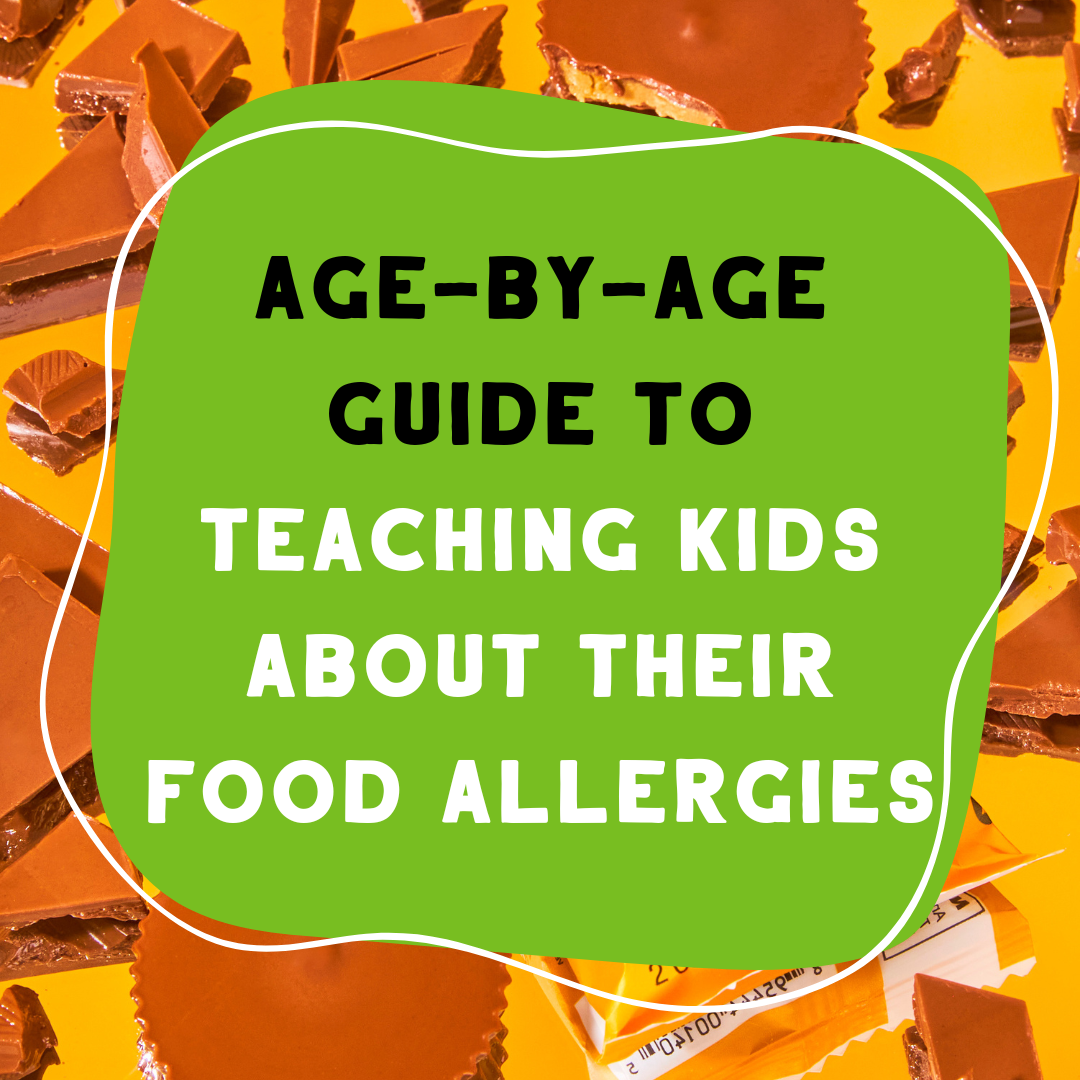

Age-by-Age Guide to Teaching Kids About Their Food Allergies
Helping children understand their food allergies is an essential part of keeping them safe and empowering them to navigate the world with confidence. As your child grows, their understanding of food allergies and their ability to manage them will evolve. Here’s a guide to teaching kids about their allergies with age-appropriate strategies, so they can take an active role in their safety at every stage of life.
Ages 2–4: Building Awareness
At this stage, children are beginning to grasp basic concepts. Your goal is to help them recognize their food allergies and understand that certain foods are unsafe.
- Introduce basic concepts: Use simple language like, “This food can make you feel sick,” or, “We eat special foods that keep you healthy.”
- Practice saying “no”: Role-play situations where your child might be offered food, teaching them to say, “No, thank you,” and to check with a parent or caregiver first.
- Create routines: Establish habits like washing hands before and after eating and only accepting food from trusted sources.
- Engage with educational materials: Utilize resources like Ally and Andy’s Activity Book from the Asthma and Allergy Foundation of America (AAFA), which introduces food allergies through engaging stories and activities.
Ages 5–7: Understanding the Basics
As children enter school, they encounter new environments and people. This is a critical time to teach foundational skills for managing their allergies.
- Explain their allergens: Help your child identify their allergens and recognize foods that contain them. For example, “Peanuts are in peanut butter, cookies, and some candies.”
- Teach them to ask questions: Encourage your child to ask, “What’s in this?” or, “Does this have my allergen?” before eating unfamiliar foods.
- Practice using an epinephrine auto-injector: Use a trainer device to show your child how it works, so they’re familiar with it in case of an emergency.
- Introduce educational programs: Consider programs like FARE’s Be a PAL® Program, which teaches children how to be a good friend to kids with food allergies, promoting empathy and understanding.
Ages 8–12: Taking Responsibility
As children grow older, they can take more responsibility for their allergy management. They’re capable of understanding more complex information and advocating for themselves.
- Involve them in food prep: Teach your child how to read food labels and involve them in cooking and packing safe meals and snacks.
- Role-play social scenarios: Practice situations they might encounter at school, parties, or restaurants, like refusing unsafe food or explaining their allergies to others.
- Discuss emergency plans: Review their allergy action plan together, ensuring they know the steps to take during a reaction.
- Utilize educational curricula: Explore FAACT’s Food Allergy Curricula Program for Schools, designed for grades K-12, offering interactive presentations and activities to educate students about food allergies and anaphylaxis.
Teenagers: Building Independence
Teenagers begin to assert more independence, which can make managing food allergies more challenging. Focus on helping them make safe choices and preparing them for real-world situations.
- Teach them to read labels carefully: Ensure they understand how to identify allergens and hidden ingredients on food packaging.
- Discuss peer pressure: Talk openly about the importance of adhering to allergy-safe habits, even when friends encourage risky behavior.
- Prepare them for dining out: Teach them how to communicate their allergies clearly to restaurant staff and choose safe menu options.
- Encourage carrying epinephrine: Reinforce the importance of always having their epinephrine auto-injector on hand and knowing how to use it.
Young Adults: Navigating the World on Their Own
As your child enters adulthood, they’ll take full responsibility for managing their allergies. Your role shifts to providing support and ensuring they feel confident in their abilities.
- Discuss travel safety: Teach them how to pack allergy-friendly snacks, communicate their allergies in different languages, and navigate unfamiliar cuisines.
- Prepare them for college: Talk about managing allergies in dorms, dining halls, and social situations. Share resources like FARE’s College Search Tool for additional guidance.
- Encourage self-advocacy: Help them practice confidently communicating their needs in workplaces, relationships, and other adult settings.
- Stay connected: Remind them that they can always reach out for advice or support when needed.
Empowering Your Child, One Step at a Time
Teaching your child about their food allergies is a journey that evolves with their age and independence. By providing age-appropriate education and support, you’re helping them build the skills they need to stay safe, advocate for themselves, and live confidently. Remember, it’s not just about avoiding allergens—it’s about empowering your child to navigate life with food allergies successfully.
